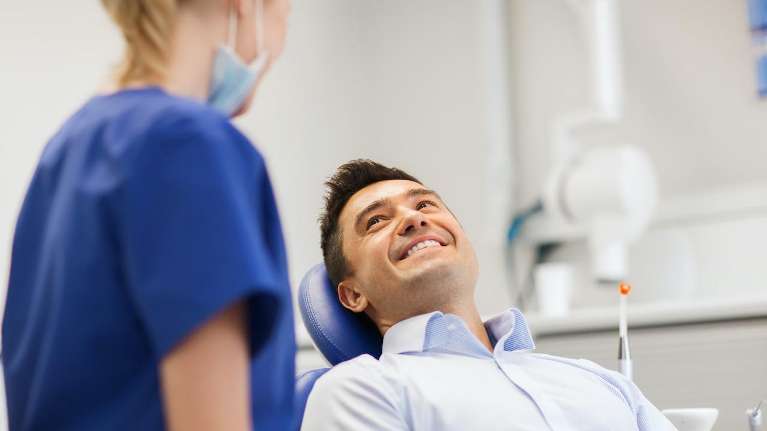
Many people suffer from jaw pain, often associated with clicking or popping while chewing or moving the jaw. This and other symptoms can be signs you are suffering from a common problem called temporomandibular joint syndrome, more commonly known as TMJ.
What is TMJ syndrome?
The temporomandibular joint is the joint connecting your jaw to the rest of your skull. If you place your hand on your jaw just in front of the center of your ear and move your jaw, you should be able to feel the pieces moving. TMJ syndrome is a disorder of the nerves and muscles of this joint, which can begin with discomfort and sometimes lead to long-term problems.
TMJ can be linked to a variety of causes including — but not limited to — grinding of teeth, misalignment of the jaw or teeth, stress, arthritis, and more. Even poor posture can lead to TMJ syndrome.
Symptoms of TMJ Syndrome
-
Pain in the joint of the jaw – TMJ can be caused by tension in the muscles around the jaw causing stress on the joint or extra pressure being applied as with teeth grinding. This can create a soreness or aching in the jaw in and around the joints. This aching pain can also be experienced around your ears or face.
-
Clicking or popping sounds from the jaw – When the temporomandibular joint gets out of alignment, as can be caused by stress or postural problems, the interlocking pieces of bone and cartilage can rub against one another causing a clicking or popping noise, often both felt and heard. This clicking is often painful to TMJ sufferers.
-
Locking of the joint – If the case of TMJ syndrome gets severe, tension in the joint muscles, as well as inflammation, can cause the joint to lock up. This symptom often comes with pain, and makes it very difficult for you to open or close your mouth.
What to do if you experience these symptoms
If you find you suffer from some or all of these symptoms, it is possible you have TMJ syndrome. It is wise to consult your dentist if you experience these symptoms and allow them to determine if the condition exists. Pike Creek Dental Practice in Pike Creek, DE, has professionals ready to answer any further questions about TMJ. Make an appointment today and see if you’re in need of treatment.



